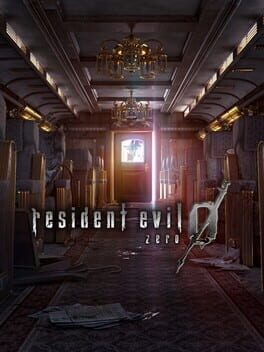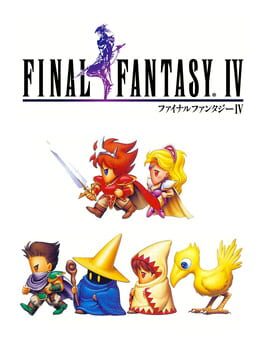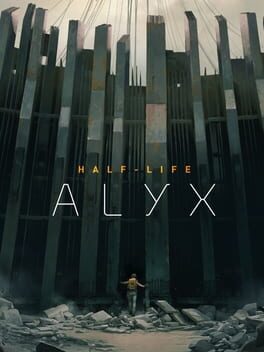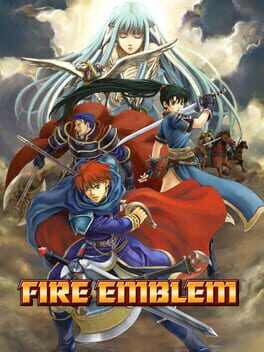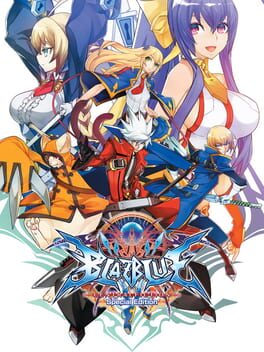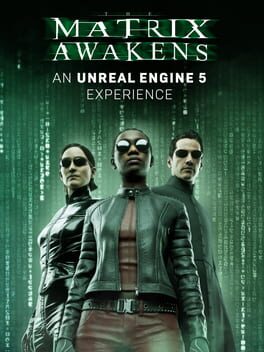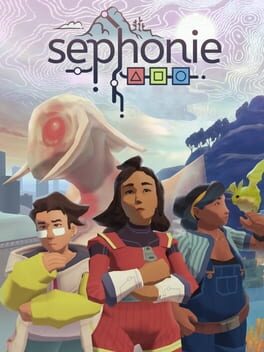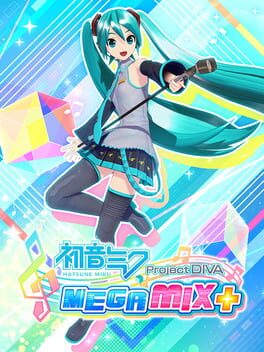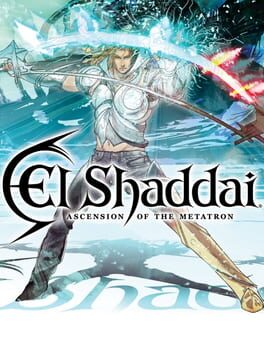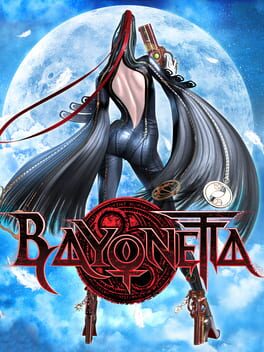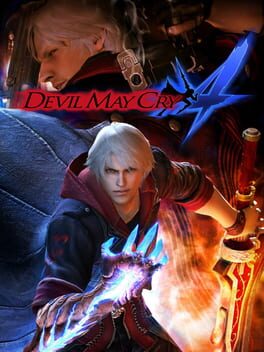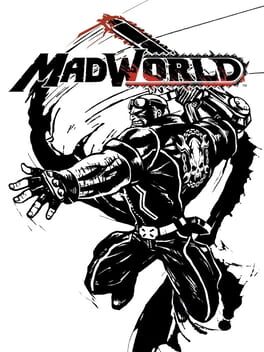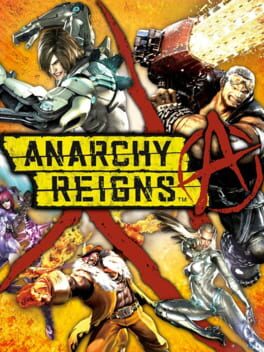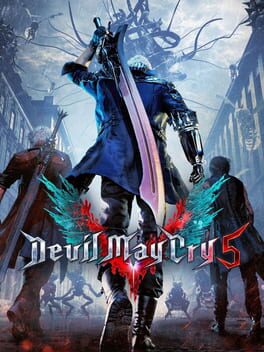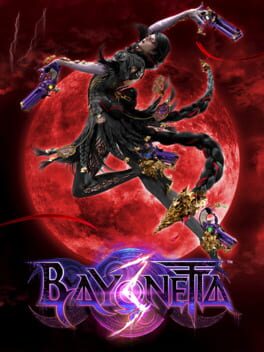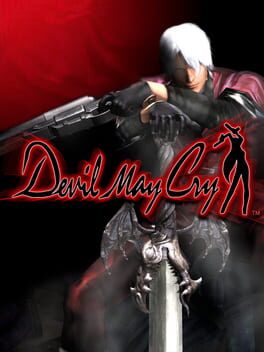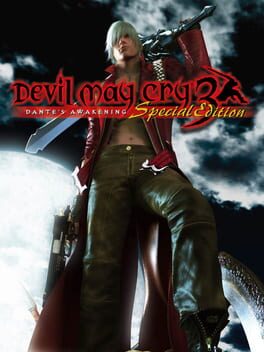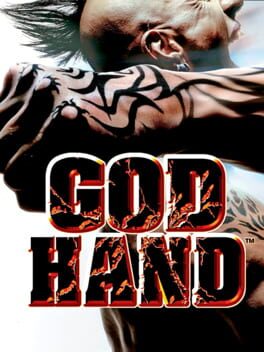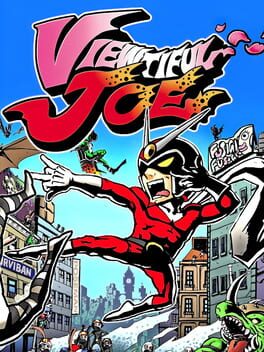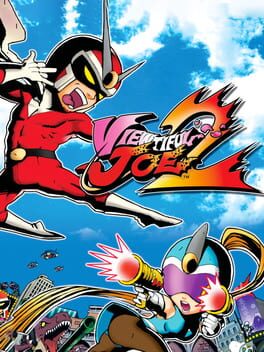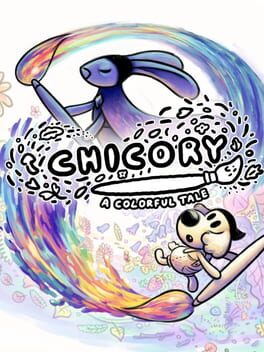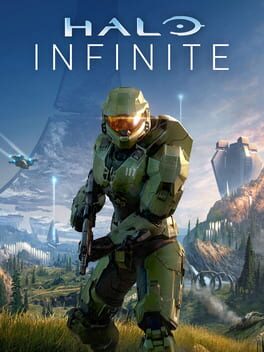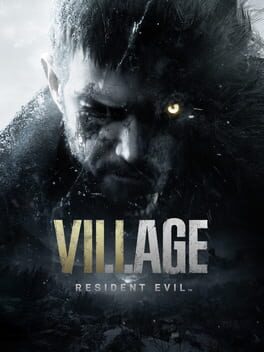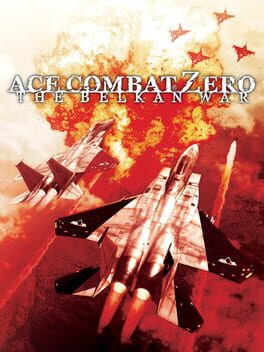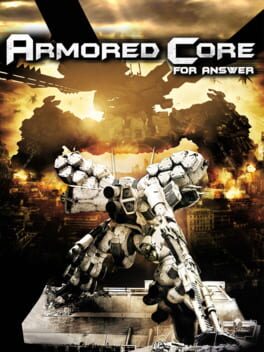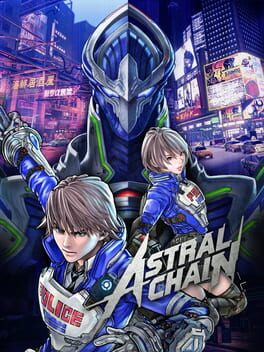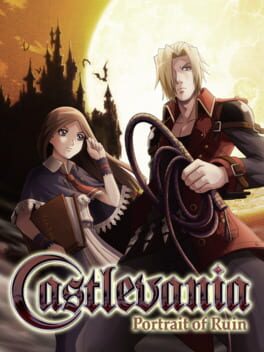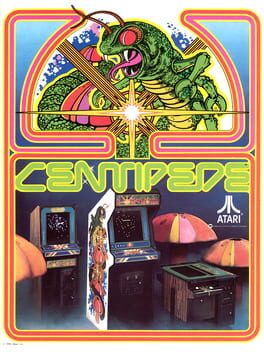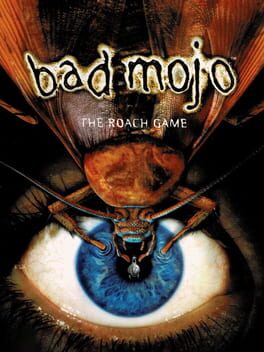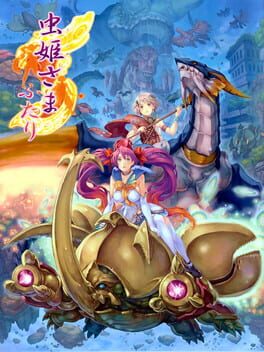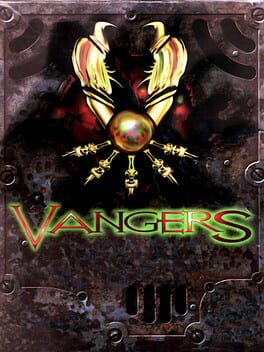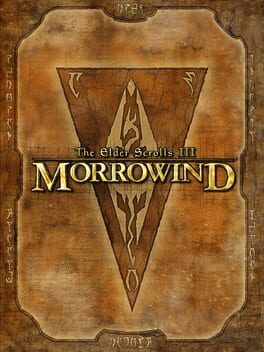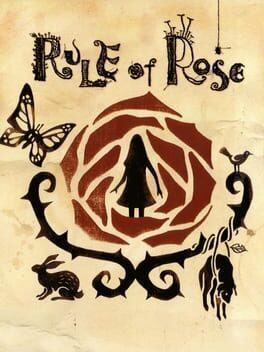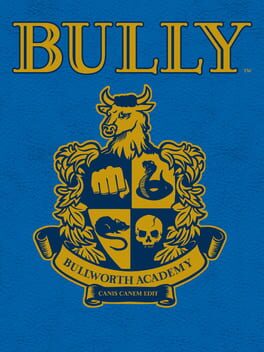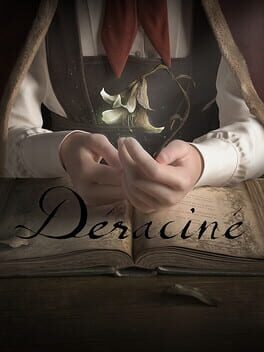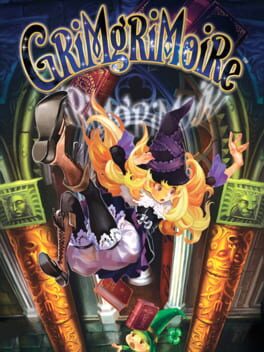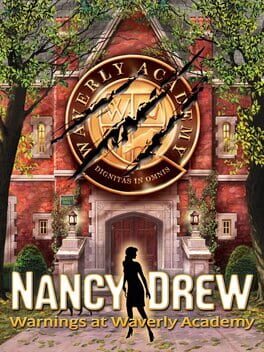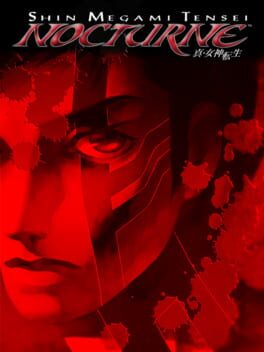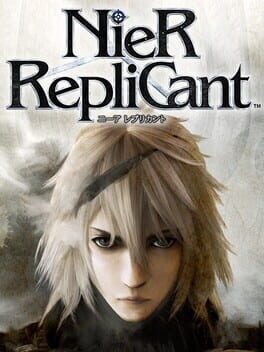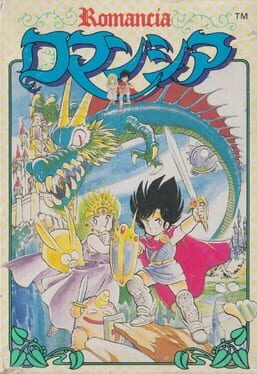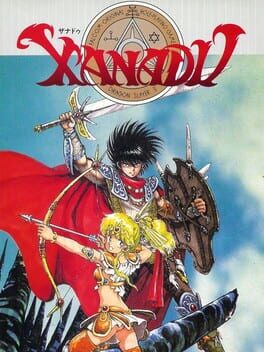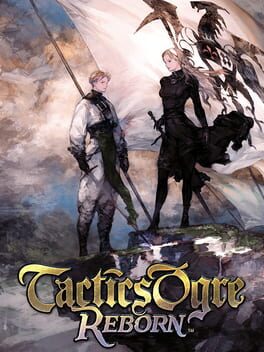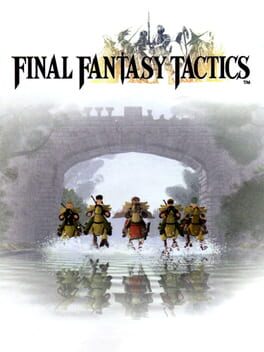mikkey
12 reviews liked by mikkey
Resident Evil 0
2016
This review contains spoilers
Capcom's Resident Evil Zero remains a controversial game in the Resident Evil franchise, so it's only natural that such a controversial game was subject to a very rough development cycle. Originally being developed for the Nintendo 64, Zero's development was completely restarted for the GameCube when it became abundantly clear that the N64's storage constraints were insurmountable and the 64DD add-on sold too poorly to justify development for it. Director Koji Oda made a point to differentiate Zero from previous games, partly due to hardware constraints and partly due to wanting to innovate on the survival horror formula. These departures have received a variety of reactions, some praising them for shaking up the formula and some criticizing them for being unintuitive. I'd say I generally lean more positive than most, but I'd still argue the game has some glaring flaws.
The original screenplay was written by Noboru Sugimura, writer of Resident Evil 2, before being significantly retooled post-reboot by Hiromichi Nakamoto and Junichi Miyashita. Resident Evil Zero serves as a prequel to the original Resident Evil. You play as Rebecca Chambers, the rookie medic from the first game, investigating the strange murders occurring within the Arklay Mountains with the rest of the STARS Bravo Team. After a dangerous helicopter crash and increasingly hostile weather conditions, she is separated from her team and boards the Ecliptic Express, an abandoned luxury train now populated by the living dead. On the train, she meets escaped death-row inmate Billy Coen, with whom she forms an uneasy alliance. Together, they must survive the horrors that lurk beyond.
Zero's story is a mixed bag, to say the least, suffering from often ridiculous tonal shifts and a general lack of focus. The biggest problem with the narrative is the antagonist, a mysterious man who controls an army of shapeshifting leeches, which he controls by singing opera. This feels entirely out of place and only gets more ridiculous when his true nature is revealed. Another issue I had with the story was its connection to the rest of the series. Despite being a prequel, Zero does very little to expand on the first game in a meaningful way, only really delving into what Rebecca had been up to before it. Characters from previous games like Albert Wesker, William Birkin, and Enrico Marini appear very briefly simply to remind you that this is a prequel, and their inclusion feels like hollow fanservice as a result. Like previous Resident Evil games, most of the narrative is told through memos that can be found in the environment, and these memos do wonders fleshing out Zero's story. However, previous RE games told you their stories with both memos and more traditional cutscenes, but Zero seems content to stick to the former. Because of this, the game lacks narrative flow, and it's hard to stay invested when the writers themselves seemingly aren't. You need to have a balance between the two, and Zero simply fails to achieve this. It's not all leeches and zombies though, there is one narrative aspect that Zero's writing succeeds in, and that is the relationship between Rebecca and Billy. Initially hostile, they eventually become blood brothers on the battlefield. The scene where Billy opens up to Rebecca about his PTSD from his service in Africa, reminiscing on how his squad was ordered to fire upon unarmed civilians, is genuinely emotional and you can hear the pain in his voice. The two feel like a real pair by the end of the game and it's heartwarming when Rebecca, despite her orders to capture Billy, decides to falsely report him as a casualty instead of turning him in. It's the only element of this story that actually works and I wish it were part of a much more engaging narrative.
Zero's most controversial element was its gameplay, originally designed by the legendary Hideki Kamiya before being iterated upon by a myriad of other designers. The biggest change is the partner system. RE2 had the "zapping system" which showed that Leon and Claire were working together, though in actuality it was a thinly veiled illusion. Zero, however, gives you control of both Rebecca and Billy simultaneously. Although this has proved controversial as all elements of Zero have, I found it to be a refreshing innovation in the Resident Evil formula, especially after Code Veronica had done so little to change it. It fundamentally changes how you strategize and divide resources, after all, now you have two mouths to feed. This forces you to think a lot more carefully than you would in a comparatively easier game like RE2. The puzzles designed around this mechanic were generally quite fun, too, minus a particularly repetitive box puzzle in the late game. The partner AI is pretty decent, and you can even give it commands if you don't want it wasting ammo on every zombie in sight. You can also leave them behind in a safe room if they've taken too much damage. It's surprisingly very intuitive for a mechanic often described as "cumbersome". The lack of item boxes, on the other hand, I am not fond of. I don't think it makes the game "unplayable" as some reviews have stated, far from it, but it doesn't really add any new strategy to the game either. Any seasoned RE player will just dump all of their nonessential items in the main hall, where nothing will attack them, and just leave them there until necessary. It trivializes any potential difficulty or strategy that the mechanic could have brought since I don't have to worry about backtracking to some potentially dangerous location to find ink ribbons, I can just go back to the always enemy-free main hall. Since the new inventory system doesn't really add anything, Capcom should have just stuck with the traditional item box system, which would have at least made some of the backtracking less tedious. That's another problem this game has: the backtracking. Backtracking is just an inherent part of survival horror and isn't necessarily a bad thing, but in Zero it feels a tad excessive. For the most part, it's a little uneven, but generally fine. However, in the final stage of the game, every single puzzle is spread out so far from the rest that it becomes an act of herculean willpower to actually get through it. The game's difficulty balancing is also fairly unrefined. I played on hard mode, as I want survival horror games to push me to my limits, but Zero goes too far at points. Despite having two health bars to tend to, the game only gives you barely enough to maintain one. The game's new enemies are also ridiculously frustrating at points. The mimicry marcuses aren't too bad, they are the "elite mook" of the game similar to the hunters and lickers in the previous games respectively. The threat they represent is genuinely terrifying. The problem is, the game has two more elite mooks in the form of the hunters and eliminators, so a good amount of the game's enemies can really put the hurt on you. It feels excessive and leads to many frustrating encounters.
When you complete Zero, you unlock an extra game mode called Leech Hunter. In this mode, you have to collect as many crystal leeches as you can throughout the training facility. Essentially, this is Zero's battle/mercenaries mode. Each leech is either blue or green, and each color can only be picked up by one of the characters respectively. I only gave Leech Hunter a brief spin, as it did not hold my interest for too long, but I found it to be an interesting little minigame. The most interesting part is how it doesn't have any timer whatsoever. You can explore the facility collecting leeches to your heart's content, leaving whenever you feel you've got enough. This does mean the mode lacks the tension of The Mercenaries, but I can imagine spending more time on it at a later date. It's decent for what it is.
If the gameplay has so many flaws, why exactly have I rated the game so highly? Well, because when it works, which is most of the time, it's a very solid survival horror experience. The flaws are hard-to-ignore and drag the experience down, but the moment-to-moment survival gameplay is still as fun and tense as usual. It's a wonder it still manages to be as fun as it is despite all of its warts.
Resident Evil Zero's visuals are the highlight of the experience. Capcom's previous title, the Resident Evil remake, was a graphical showcase itself, but Zero bests even that. Zero still uses the pre-rendered backgrounds of old but uses them so masterfully you'd have a hard time differentiating them from the 3D elements when playing on a real GameCube with a CRT TV. REmake's backgrounds were also a thing of beauty, but Zero increases the realism further by animating them. The animated pieces layer realistically over the 3D elements, which always had my jaw on the floor, asking "how did they do it?". The way the lighting affects both the backgrounds and the models simultaneously, casting real-time shadows on what are essentially two-dimensional videos is mind-blowing. It's just so seamless. The models look great too. They've been touched up for the HD Remaster, and in some ways look superior. Rebecca no longer looks twelve years old, which is a plus. Billy, however, looks kind of strange at points, and it's hard to put a finger exactly how. Speaking of 3D elements, it's especially impressive how the mimicry marcus enemies can transition so seamlessly between their human form and their swarm-like leech form without missing a single beat. The FMV cutscenes also generally look good, obviously boasting superior fidelity to the in-engine cutscenes. However, the facial animation looks a bit strange at points, with both Birkin and Enrico's lips seemingly not entirely matching what they're saying. The cinematography is also rather silly, with fast pans emphasizing the action, which is at odds with the distant camerawork of the in-engine cutscenes. Nevertheless, they are technically impressive and fun to watch, even if they lean a bit on the ridiculous side.
Although the game's technical presentation is excellent, the art direction has some issues. It ranges from excellent to uninspired, which can cause quite a bit of whiplash. The Ecliptic Express is the best-looking location, and the general fanciness of the luxury railway makes for an interesting and highly immersive setting. The training facility, however, is essentially a rehash of the Spencer Mansion from the first game. It's rendered well but doesn't really have any defining traits that make it memorable, which is a problem as the majority of the game takes place there. The laboratory generally looks a bit more inspired but is still nothing to write home about, and although I appreciated the return of RE2's marshaling yard, things don't really pick up again until the treatment plant, which provides the scale necessary for a final level. The monster designs are also problematic. The mimicry marcuses look fantastic, and it's really cool how they mimic the look of their creator in blind fanaticism. Their transformation into a swarm of loosely connected leeches also looks awesome. However, the majority of the new monsters essentially boil down to "animal but big and rotting" and it's not particularly creative. Sure, previous games have had plenty of monsters befitting that trope, but they had more original freaks of nature to balance it out. Regardless of these issues, Zero is generally a fantastic-looking game, with a few questionable artistic decisions here and there.
Zero's soundtrack was composed by Seiko Kobuchi, and even by the franchise's high standards, it's rock solid. Kobuchi favors sorrowful pianos for more dramatic moments and distorted strings for moments of horror. Taking a cue from Akira Yamaoka, he uses industrial droning noises for ambiance, though perhaps without Yamaoka's signature variety. I think the mimicry marcus' theme got on my nerves a bit, but it's not a bad composition in and of itself. I'm not a huge fan of the opera bits, but I cannot deny they are well performed. There is genuine beauty in Kobuchi's compositions and they perfectly fit every situation they've been placed in. It's not as memorable as, say, RE2's ost, but it works perfectly given the context.
Discussing voice acting within the context of Resident Evil is always going to be an interesting discussion. Many bemoan the cheesy performances in some games, whereas others see them as part of the b-movie charm. I've always been somewhere in the middle, adoring RE1's ridiculous voice acting and appreciating RE3's surprisingly good performances. Similar to the rest of the game, Zero's voice acting is rather mixed. James Kee and Riva Di Paola do pretty solid jobs as the two protagonists, effectively performing emotional beats. Kee manages to make the "gruff badass" voice work, which is rather rare in media, and Di Paola is more expressive as Rebecca than Hope Levy was in REmake. However, that's where the good performances end. Richard Waugh returns to play Wesker, but unlike Code Veronica, I don't think his performance works. He can't seem to tell if Wesker has a British or American accent and it's rather distracting at points. Wesker had an American accent during the events of RE1, so it doesn't make sense that he'd randomly slip into British pronunciation with certain lines. Although it is unknown who exactly voiced Birkin, his delivery is incredibly stilted and provided us with the infamous "I will take over your research! Ha ha ha!". Lyon Smith plays the mysterious leech man, and while his performance is fitting for the character, it shares the same issue of being too over the top to take seriously whatsoever.
After reading the discourse surrounding Resident Evil Zero, I wasn't exactly sure what to expect of the game going in. I'm surprised to have enjoyed it as much as I did. Zero is a pretty good survival horror game that, despite issues with difficulty, storytelling, mechanics, and art direction, manages to be a rather fun experience overall. Zero is kind of the ultimate filter, as in I can't imagine the average gamer enjoying this at all, but I'd imagine survival horror junkies like myself will get quite the kick out of it. As for Resident Evil diehards, if you haven't checked Zero out yet, it's definitely worth a shot. Despite its flaws, it's still a worthwhile experience.
The original screenplay was written by Noboru Sugimura, writer of Resident Evil 2, before being significantly retooled post-reboot by Hiromichi Nakamoto and Junichi Miyashita. Resident Evil Zero serves as a prequel to the original Resident Evil. You play as Rebecca Chambers, the rookie medic from the first game, investigating the strange murders occurring within the Arklay Mountains with the rest of the STARS Bravo Team. After a dangerous helicopter crash and increasingly hostile weather conditions, she is separated from her team and boards the Ecliptic Express, an abandoned luxury train now populated by the living dead. On the train, she meets escaped death-row inmate Billy Coen, with whom she forms an uneasy alliance. Together, they must survive the horrors that lurk beyond.
Zero's story is a mixed bag, to say the least, suffering from often ridiculous tonal shifts and a general lack of focus. The biggest problem with the narrative is the antagonist, a mysterious man who controls an army of shapeshifting leeches, which he controls by singing opera. This feels entirely out of place and only gets more ridiculous when his true nature is revealed. Another issue I had with the story was its connection to the rest of the series. Despite being a prequel, Zero does very little to expand on the first game in a meaningful way, only really delving into what Rebecca had been up to before it. Characters from previous games like Albert Wesker, William Birkin, and Enrico Marini appear very briefly simply to remind you that this is a prequel, and their inclusion feels like hollow fanservice as a result. Like previous Resident Evil games, most of the narrative is told through memos that can be found in the environment, and these memos do wonders fleshing out Zero's story. However, previous RE games told you their stories with both memos and more traditional cutscenes, but Zero seems content to stick to the former. Because of this, the game lacks narrative flow, and it's hard to stay invested when the writers themselves seemingly aren't. You need to have a balance between the two, and Zero simply fails to achieve this. It's not all leeches and zombies though, there is one narrative aspect that Zero's writing succeeds in, and that is the relationship between Rebecca and Billy. Initially hostile, they eventually become blood brothers on the battlefield. The scene where Billy opens up to Rebecca about his PTSD from his service in Africa, reminiscing on how his squad was ordered to fire upon unarmed civilians, is genuinely emotional and you can hear the pain in his voice. The two feel like a real pair by the end of the game and it's heartwarming when Rebecca, despite her orders to capture Billy, decides to falsely report him as a casualty instead of turning him in. It's the only element of this story that actually works and I wish it were part of a much more engaging narrative.
Zero's most controversial element was its gameplay, originally designed by the legendary Hideki Kamiya before being iterated upon by a myriad of other designers. The biggest change is the partner system. RE2 had the "zapping system" which showed that Leon and Claire were working together, though in actuality it was a thinly veiled illusion. Zero, however, gives you control of both Rebecca and Billy simultaneously. Although this has proved controversial as all elements of Zero have, I found it to be a refreshing innovation in the Resident Evil formula, especially after Code Veronica had done so little to change it. It fundamentally changes how you strategize and divide resources, after all, now you have two mouths to feed. This forces you to think a lot more carefully than you would in a comparatively easier game like RE2. The puzzles designed around this mechanic were generally quite fun, too, minus a particularly repetitive box puzzle in the late game. The partner AI is pretty decent, and you can even give it commands if you don't want it wasting ammo on every zombie in sight. You can also leave them behind in a safe room if they've taken too much damage. It's surprisingly very intuitive for a mechanic often described as "cumbersome". The lack of item boxes, on the other hand, I am not fond of. I don't think it makes the game "unplayable" as some reviews have stated, far from it, but it doesn't really add any new strategy to the game either. Any seasoned RE player will just dump all of their nonessential items in the main hall, where nothing will attack them, and just leave them there until necessary. It trivializes any potential difficulty or strategy that the mechanic could have brought since I don't have to worry about backtracking to some potentially dangerous location to find ink ribbons, I can just go back to the always enemy-free main hall. Since the new inventory system doesn't really add anything, Capcom should have just stuck with the traditional item box system, which would have at least made some of the backtracking less tedious. That's another problem this game has: the backtracking. Backtracking is just an inherent part of survival horror and isn't necessarily a bad thing, but in Zero it feels a tad excessive. For the most part, it's a little uneven, but generally fine. However, in the final stage of the game, every single puzzle is spread out so far from the rest that it becomes an act of herculean willpower to actually get through it. The game's difficulty balancing is also fairly unrefined. I played on hard mode, as I want survival horror games to push me to my limits, but Zero goes too far at points. Despite having two health bars to tend to, the game only gives you barely enough to maintain one. The game's new enemies are also ridiculously frustrating at points. The mimicry marcuses aren't too bad, they are the "elite mook" of the game similar to the hunters and lickers in the previous games respectively. The threat they represent is genuinely terrifying. The problem is, the game has two more elite mooks in the form of the hunters and eliminators, so a good amount of the game's enemies can really put the hurt on you. It feels excessive and leads to many frustrating encounters.
When you complete Zero, you unlock an extra game mode called Leech Hunter. In this mode, you have to collect as many crystal leeches as you can throughout the training facility. Essentially, this is Zero's battle/mercenaries mode. Each leech is either blue or green, and each color can only be picked up by one of the characters respectively. I only gave Leech Hunter a brief spin, as it did not hold my interest for too long, but I found it to be an interesting little minigame. The most interesting part is how it doesn't have any timer whatsoever. You can explore the facility collecting leeches to your heart's content, leaving whenever you feel you've got enough. This does mean the mode lacks the tension of The Mercenaries, but I can imagine spending more time on it at a later date. It's decent for what it is.
If the gameplay has so many flaws, why exactly have I rated the game so highly? Well, because when it works, which is most of the time, it's a very solid survival horror experience. The flaws are hard-to-ignore and drag the experience down, but the moment-to-moment survival gameplay is still as fun and tense as usual. It's a wonder it still manages to be as fun as it is despite all of its warts.
Resident Evil Zero's visuals are the highlight of the experience. Capcom's previous title, the Resident Evil remake, was a graphical showcase itself, but Zero bests even that. Zero still uses the pre-rendered backgrounds of old but uses them so masterfully you'd have a hard time differentiating them from the 3D elements when playing on a real GameCube with a CRT TV. REmake's backgrounds were also a thing of beauty, but Zero increases the realism further by animating them. The animated pieces layer realistically over the 3D elements, which always had my jaw on the floor, asking "how did they do it?". The way the lighting affects both the backgrounds and the models simultaneously, casting real-time shadows on what are essentially two-dimensional videos is mind-blowing. It's just so seamless. The models look great too. They've been touched up for the HD Remaster, and in some ways look superior. Rebecca no longer looks twelve years old, which is a plus. Billy, however, looks kind of strange at points, and it's hard to put a finger exactly how. Speaking of 3D elements, it's especially impressive how the mimicry marcus enemies can transition so seamlessly between their human form and their swarm-like leech form without missing a single beat. The FMV cutscenes also generally look good, obviously boasting superior fidelity to the in-engine cutscenes. However, the facial animation looks a bit strange at points, with both Birkin and Enrico's lips seemingly not entirely matching what they're saying. The cinematography is also rather silly, with fast pans emphasizing the action, which is at odds with the distant camerawork of the in-engine cutscenes. Nevertheless, they are technically impressive and fun to watch, even if they lean a bit on the ridiculous side.
Although the game's technical presentation is excellent, the art direction has some issues. It ranges from excellent to uninspired, which can cause quite a bit of whiplash. The Ecliptic Express is the best-looking location, and the general fanciness of the luxury railway makes for an interesting and highly immersive setting. The training facility, however, is essentially a rehash of the Spencer Mansion from the first game. It's rendered well but doesn't really have any defining traits that make it memorable, which is a problem as the majority of the game takes place there. The laboratory generally looks a bit more inspired but is still nothing to write home about, and although I appreciated the return of RE2's marshaling yard, things don't really pick up again until the treatment plant, which provides the scale necessary for a final level. The monster designs are also problematic. The mimicry marcuses look fantastic, and it's really cool how they mimic the look of their creator in blind fanaticism. Their transformation into a swarm of loosely connected leeches also looks awesome. However, the majority of the new monsters essentially boil down to "animal but big and rotting" and it's not particularly creative. Sure, previous games have had plenty of monsters befitting that trope, but they had more original freaks of nature to balance it out. Regardless of these issues, Zero is generally a fantastic-looking game, with a few questionable artistic decisions here and there.
Zero's soundtrack was composed by Seiko Kobuchi, and even by the franchise's high standards, it's rock solid. Kobuchi favors sorrowful pianos for more dramatic moments and distorted strings for moments of horror. Taking a cue from Akira Yamaoka, he uses industrial droning noises for ambiance, though perhaps without Yamaoka's signature variety. I think the mimicry marcus' theme got on my nerves a bit, but it's not a bad composition in and of itself. I'm not a huge fan of the opera bits, but I cannot deny they are well performed. There is genuine beauty in Kobuchi's compositions and they perfectly fit every situation they've been placed in. It's not as memorable as, say, RE2's ost, but it works perfectly given the context.
Discussing voice acting within the context of Resident Evil is always going to be an interesting discussion. Many bemoan the cheesy performances in some games, whereas others see them as part of the b-movie charm. I've always been somewhere in the middle, adoring RE1's ridiculous voice acting and appreciating RE3's surprisingly good performances. Similar to the rest of the game, Zero's voice acting is rather mixed. James Kee and Riva Di Paola do pretty solid jobs as the two protagonists, effectively performing emotional beats. Kee manages to make the "gruff badass" voice work, which is rather rare in media, and Di Paola is more expressive as Rebecca than Hope Levy was in REmake. However, that's where the good performances end. Richard Waugh returns to play Wesker, but unlike Code Veronica, I don't think his performance works. He can't seem to tell if Wesker has a British or American accent and it's rather distracting at points. Wesker had an American accent during the events of RE1, so it doesn't make sense that he'd randomly slip into British pronunciation with certain lines. Although it is unknown who exactly voiced Birkin, his delivery is incredibly stilted and provided us with the infamous "I will take over your research! Ha ha ha!". Lyon Smith plays the mysterious leech man, and while his performance is fitting for the character, it shares the same issue of being too over the top to take seriously whatsoever.
After reading the discourse surrounding Resident Evil Zero, I wasn't exactly sure what to expect of the game going in. I'm surprised to have enjoyed it as much as I did. Zero is a pretty good survival horror game that, despite issues with difficulty, storytelling, mechanics, and art direction, manages to be a rather fun experience overall. Zero is kind of the ultimate filter, as in I can't imagine the average gamer enjoying this at all, but I'd imagine survival horror junkies like myself will get quite the kick out of it. As for Resident Evil diehards, if you haven't checked Zero out yet, it's definitely worth a shot. Despite its flaws, it's still a worthwhile experience.
Resident Evil 0
2016
I spent my entire time with this game trying to figure out if I liked it or not. This is my first tank controlled RE game that I've played all the way through, and I'm still not entirely sure how I feel about it.
The actual combat can be really engaging, especially in the beginning during the train segment and the training facility. Trying to solve the puzzles and deal with zombies was far more engaging than I expected it to be.
Unfortunately, after the training facility, the game starts to feel like a train-wreck (no pun intended). I despised the bat boss the most (shoutout to youtuber FurryWulfz for making a video showing how to cheese this awful boss, wouldn't have finished the game without you). Everything afterwards just becomes less and less engaging, to the point that I thought about not playing anymore.
There are some moments towards the end that work, but for the most part, it just feels like an incoherent jumbled mess. I was the most put off when a boss I killed less than an hour ago just showed up again for no reason.
Aside from that, I didn't really mind the whole "controlling two characters" gimmick, but I honestly preferred it the most when the game wasn't forcing me to acknowledge it. It's cool to use to cover a lot of ground quickly, but when the game separates the two characters, the pace slows down to a nearly unbearable crawl.
I also enjoyed Rebecca and Billy well enough on their own, but they honestly barely feel like a team. They almost never talk to each other outside of specific cutscenes, which just makes their relationship feel weightless. I definitely wish they got to talk a little bit more and build something between them.
Overall, while I still don't know how I feel entirely about this game, I can't really call myself a fan of it. It almost feel like a complete package, but it takes way too many wrong steps along the way that drastically reduced my experience with it. I could see others enjoying their time with this one, but I can't continentally say that I really did.
The actual combat can be really engaging, especially in the beginning during the train segment and the training facility. Trying to solve the puzzles and deal with zombies was far more engaging than I expected it to be.
Unfortunately, after the training facility, the game starts to feel like a train-wreck (no pun intended). I despised the bat boss the most (shoutout to youtuber FurryWulfz for making a video showing how to cheese this awful boss, wouldn't have finished the game without you). Everything afterwards just becomes less and less engaging, to the point that I thought about not playing anymore.
There are some moments towards the end that work, but for the most part, it just feels like an incoherent jumbled mess. I was the most put off when a boss I killed less than an hour ago just showed up again for no reason.
Aside from that, I didn't really mind the whole "controlling two characters" gimmick, but I honestly preferred it the most when the game wasn't forcing me to acknowledge it. It's cool to use to cover a lot of ground quickly, but when the game separates the two characters, the pace slows down to a nearly unbearable crawl.
I also enjoyed Rebecca and Billy well enough on their own, but they honestly barely feel like a team. They almost never talk to each other outside of specific cutscenes, which just makes their relationship feel weightless. I definitely wish they got to talk a little bit more and build something between them.
Overall, while I still don't know how I feel entirely about this game, I can't really call myself a fan of it. It almost feel like a complete package, but it takes way too many wrong steps along the way that drastically reduced my experience with it. I could see others enjoying their time with this one, but I can't continentally say that I really did.
Resident Evil 0
2016
I've softened a bit in my opinions on this one but it's still pretty blatantly the worst mainline Resident Evil game. There's just one bad design element after another (Code Veronica X rivals Zero in this regard) and it all adds up to an immensely frustrating experience.
For every pleasant bit like the train setting or Billy as a character you have the absolute worst with the inventory system, the monster design, the enemy AI, backtracking as a result of bad puzzle design, and more. I've never seen a game where you can see glimpses at something truly special go out of its way to make you feel like a fool like this one does.
Fixed camera angle Resident Evil is my favorite style for the series and one of my favorites for any kind of game but after this game I'm not surprised we didn't get another one. The fact that this released only months after the much superior remake of the first game blows my mind every time I'm reminded about it.
For every pleasant bit like the train setting or Billy as a character you have the absolute worst with the inventory system, the monster design, the enemy AI, backtracking as a result of bad puzzle design, and more. I've never seen a game where you can see glimpses at something truly special go out of its way to make you feel like a fool like this one does.
Fixed camera angle Resident Evil is my favorite style for the series and one of my favorites for any kind of game but after this game I'm not surprised we didn't get another one. The fact that this released only months after the much superior remake of the first game blows my mind every time I'm reminded about it.
Resident Evil 0
2016
Despite being first in chronological order, I do not recommend Resident Evil 0 to be your first in the franchise even if it is a solid game.
The item management system in the game is different to all other entries in the franchise. Instead of utilizing universal item boxes or briefcases, the player instead must drop items in strategic locations, remember where they left these items, and recover them when needed. Whilst most hate this new mechanic, I personally found it to be a unique challenge that tested players that might be used to how the item management works in the other games.
Tank controls are also incredibly outdated, but in my opinion are a bit of a skill issue. With practice it can be mastered but I do respect it isn't for everyone. There's a few specific areas where it feels hard to progress due to the sudden changes in camera angles, but I don't think it's enough of an issue to deduct from the games overall score.
Resident Evil 0 also brings a partner switching system, that allows the player to control both characters which can lead to some interesting puzzles and puts an even greater emphasis on the inventory management challenges that I mentioned earlier.
The presentation and audio design are phenomenal, especially of the time. Although this is the 2016 port of the 2002 GameCube original, it hasn't changed many of the original assets, instead it highlights the technically fantastic lighting effects, impressive pre-rendered backgrounds, and detailed character models that deserve it's plaudits.
Although the story isn't groundbreaking, and primarily the reason why I would not suggest this to be your first Resident Evil game, it still develops a lot of the beloved early characters of the franchise. It scratched my nerd itch to see the downfall of the S.T.A.R.S Alpha Team through the perspective of it's sole survivor, Rebecca Chambers, a beloved character in the franchise. I appreciate her chemistry with Billy Coen, our other protagonist, and despite the weak narrative, I really felt immersed in their story and the experiences they had.
What Resident Evil 0 does well is it's atmospheric horror. It fits right in with Code Veronica and REmake, and so if you enjoy the experience of either of those titles, I highly recommend checking this game out.
I always work hard towards 100% completing any game I play, and with this new account, I decided RE 0 would be the first game I attempted to complete. It was a grueling process, which took several playthroughs on various difficulties. It really felt like I had to learn the mechanics of this game inside and out, I had item placement, enemy choreography, and map layouts memorised perfectly in my mind by the end of it. These playthroughs included achieving an S-rank, beating the game on hard mode, beating the game in under 3 hours, beating the game without saving, and beating the game without healing once. It was a personal challenge that I really enjoyed achieving.
Resident Evil is also famous for it's unlockable outfits, characters, and secret modes and RE 0 is no different. One such mode is "Wesker Mode" which allows you to play as Albert Wesker, the villain of the franchise, with all of his strengths and abilities, which I found enjoyable. However, the other unlockable mode is leech mode, which I do not recommend playing at all. It is extremely unfun, however, it will provide access to a lot of extra content upon completion, including infinite ammo, for the main game, which comes in handy when attempting subsequent playthroughs. Besides the extra modes, the cosmetic content for Rebecca and Billy are fantastic and I found myself using different costumes on my multiple playthroughs.
Despite it's difficulty and weak narrative story, I really enjoyed Resident Evil. I know I opened this review by stating I wouldn't recommend this game as a starting point, but that doesn't mean I wouldn't recommend the game in general, and I think that playing this game should come later on your Resident Evil journey.
The item management system in the game is different to all other entries in the franchise. Instead of utilizing universal item boxes or briefcases, the player instead must drop items in strategic locations, remember where they left these items, and recover them when needed. Whilst most hate this new mechanic, I personally found it to be a unique challenge that tested players that might be used to how the item management works in the other games.
Tank controls are also incredibly outdated, but in my opinion are a bit of a skill issue. With practice it can be mastered but I do respect it isn't for everyone. There's a few specific areas where it feels hard to progress due to the sudden changes in camera angles, but I don't think it's enough of an issue to deduct from the games overall score.
Resident Evil 0 also brings a partner switching system, that allows the player to control both characters which can lead to some interesting puzzles and puts an even greater emphasis on the inventory management challenges that I mentioned earlier.
The presentation and audio design are phenomenal, especially of the time. Although this is the 2016 port of the 2002 GameCube original, it hasn't changed many of the original assets, instead it highlights the technically fantastic lighting effects, impressive pre-rendered backgrounds, and detailed character models that deserve it's plaudits.
Although the story isn't groundbreaking, and primarily the reason why I would not suggest this to be your first Resident Evil game, it still develops a lot of the beloved early characters of the franchise. It scratched my nerd itch to see the downfall of the S.T.A.R.S Alpha Team through the perspective of it's sole survivor, Rebecca Chambers, a beloved character in the franchise. I appreciate her chemistry with Billy Coen, our other protagonist, and despite the weak narrative, I really felt immersed in their story and the experiences they had.
What Resident Evil 0 does well is it's atmospheric horror. It fits right in with Code Veronica and REmake, and so if you enjoy the experience of either of those titles, I highly recommend checking this game out.
I always work hard towards 100% completing any game I play, and with this new account, I decided RE 0 would be the first game I attempted to complete. It was a grueling process, which took several playthroughs on various difficulties. It really felt like I had to learn the mechanics of this game inside and out, I had item placement, enemy choreography, and map layouts memorised perfectly in my mind by the end of it. These playthroughs included achieving an S-rank, beating the game on hard mode, beating the game in under 3 hours, beating the game without saving, and beating the game without healing once. It was a personal challenge that I really enjoyed achieving.
Resident Evil is also famous for it's unlockable outfits, characters, and secret modes and RE 0 is no different. One such mode is "Wesker Mode" which allows you to play as Albert Wesker, the villain of the franchise, with all of his strengths and abilities, which I found enjoyable. However, the other unlockable mode is leech mode, which I do not recommend playing at all. It is extremely unfun, however, it will provide access to a lot of extra content upon completion, including infinite ammo, for the main game, which comes in handy when attempting subsequent playthroughs. Besides the extra modes, the cosmetic content for Rebecca and Billy are fantastic and I found myself using different costumes on my multiple playthroughs.
Despite it's difficulty and weak narrative story, I really enjoyed Resident Evil. I know I opened this review by stating I wouldn't recommend this game as a starting point, but that doesn't mean I wouldn't recommend the game in general, and I think that playing this game should come later on your Resident Evil journey.
Elden Ring
2022
When Demon’s Souls released in 2009, I was going through a pretty hard crisis of faith regarding videogames. I had grown old enough to finally see their limits, the industry-imposed repetition and condescention in their design, the corners that have to be cut and padded. I blindly took the advice from a few raving cynics I aligned myself with and imported Demon’s Souls from America as a last shot before I defiantly moved on from the medium like the little drama queen I was. DeS was exactly the game I needed, I had never played anything else like it, I had my mind shattered by the way the bosses in the title weren’t so much battles as they were puzzle boxes - imposing small situations to solve, being asked to find the lone small thread that will make the beast unravel. It felt like a NeverEnding Story adventure or something, I loved it, I still do.
With every new Fromsoft game, Hidetaka Miyazaki takes the opportunity to twist the dial even further from Adventure Fantasy to Battle Fantasy, the focus becoming more oriented around a type of mechanisation I personally find diagnostic-feeling, much less fulfilling - stat optimising and gear building, rote memorisation of excruciatingly difficult boss movesets. Very disenchanting open world too; everything in every corner is there to make your character more powerful, a handful of “types” of dungeon/outpost, a truly memetic core routine that made me feel like I was just playing Genshin Impact. This is obviously just a preference thing, but you must forgive me for feeling a little left behind.
There is a lot beauty in Elden Ring’s world, if I had anyone to thank for giving me the desire to trudge through this game to the end, it’ll be the stellar art and design team. Some of the most stunning locales I’ve seen in a minute; I’m particularly fond of miquellas haligtree, crumbling farum azula, and even revisiting Radahn’s arena post-battle for a taste of what I’d personally hoped exploring Elden Ring’s open world would feel like. The monster designs are nuts too, some skirting the perfect balance between recognisable and grotesque to lend some genuine unease.
Elden Ring is a fantastic game, just not a game for me. It actually gives me a little tinge of sadness to play a Fromsoft title and be made to think “this reminds me of another game” so many times. I respect the player-hostility maximalism of the bosses and the dizzying open-endedness of character builds - and in all honestly, Elden Ring very clearly has some of the richest thematic storytelling across the Miyazaki platter right now - I would just rather watch people snap the game over their knee on Youtube than ever play this again.
2024 Addendum long after the point of writing: I'm not exactly comfortable with my "eh it's not really for me" take being among the top reviews for this game. I use this site as a personal journal more than a platform for formal academic reviews; ultimately I'm glad that I'm not alone in my perspective, but we all know how Souls fans act, and believe me I'm not pissing all over your holy object - I'm bemoaning the fact that I've felt this illustrious series slip through my fingers and take the form of something I can no longer care for.
With every new Fromsoft game, Hidetaka Miyazaki takes the opportunity to twist the dial even further from Adventure Fantasy to Battle Fantasy, the focus becoming more oriented around a type of mechanisation I personally find diagnostic-feeling, much less fulfilling - stat optimising and gear building, rote memorisation of excruciatingly difficult boss movesets. Very disenchanting open world too; everything in every corner is there to make your character more powerful, a handful of “types” of dungeon/outpost, a truly memetic core routine that made me feel like I was just playing Genshin Impact. This is obviously just a preference thing, but you must forgive me for feeling a little left behind.
There is a lot beauty in Elden Ring’s world, if I had anyone to thank for giving me the desire to trudge through this game to the end, it’ll be the stellar art and design team. Some of the most stunning locales I’ve seen in a minute; I’m particularly fond of miquellas haligtree, crumbling farum azula, and even revisiting Radahn’s arena post-battle for a taste of what I’d personally hoped exploring Elden Ring’s open world would feel like. The monster designs are nuts too, some skirting the perfect balance between recognisable and grotesque to lend some genuine unease.
Elden Ring is a fantastic game, just not a game for me. It actually gives me a little tinge of sadness to play a Fromsoft title and be made to think “this reminds me of another game” so many times. I respect the player-hostility maximalism of the bosses and the dizzying open-endedness of character builds - and in all honestly, Elden Ring very clearly has some of the richest thematic storytelling across the Miyazaki platter right now - I would just rather watch people snap the game over their knee on Youtube than ever play this again.
2024 Addendum long after the point of writing: I'm not exactly comfortable with my "eh it's not really for me" take being among the top reviews for this game. I use this site as a personal journal more than a platform for formal academic reviews; ultimately I'm glad that I'm not alone in my perspective, but we all know how Souls fans act, and believe me I'm not pissing all over your holy object - I'm bemoaning the fact that I've felt this illustrious series slip through my fingers and take the form of something I can no longer care for.
Final Fantasy IV
1991
Final Fantasy 4 is like a giant breaking through a tiny door: its sheer size makes everyone realise they need to build doors bigger from now on, but that doesn’t make the huge splintery mess left behind not a mess.
This is Final Fantasy’s first and foremost sin: having an ambition too great for the medium in which it then existed. But we are all sinners here, and as far as sins go there are far worse to commit. War crimes, for instance.
I do not mention sin frivolously: it is a quintessential part of Final Fantasy 4’s voluminous themes, themes that strained at the seams of the Super Famicom like the coquettish vest of a French aristocrat after a regular 12 course lunch on the 14th of July 1789. And like that poor powdered wig (soon to be without a head), a revolution was coming.
Again, I do not mention the revolution frivolously, for to understand Final Fantasy 4, one must understand that the text is translated poorly. Localised badly into English from the original French. Yes, the body might be Japanese but the soul of Final Fantasy 4 was penned by a man known affectionately as Victor Motherfucking Hugo.
Les Miserables (The Miserable Ones in its native French) is a novel written by Victor Hugo. The hero of Les Miserables is Jean Valjean, a French commoner who is raised poor and in a brutal environment who, out of obligation to his younger nephews, steals food for them. For this he is sent to jail for seven years. When he attempts to escape, he is given another seven. When he is finally released, he finds his status as a former prisoner prevents him from being hired. He has been given a bad hand, but he worsens it by becoming a wild animal.
It is during this chaos time that our Jean meets the Bishop Myriel, a kindly Christian bishop in a regional town. Valjean is poor and starving and tired, Myriel gives him food and shelter. Valjean repays him by stealing the bishop's silverware. He is caught by the cops immediately, because this is a fictional tale and so cops actually catch thieves.
Valjean lies and says the bishop gave the silverware to him. The cops don't believe him- because he is a criminal and also because it is a very bad lie- but on arrival at the bishop’s doorstep, our dear Myriel not only corroborates Valjean’s story, but also tells him: "you forgot the candlesticks", the most precious part of the collection, which he then gives to Valjean.
This act changes Valjean’s life. Valjean is overcome with shame at his own actions- and this saves him, ennobles him, because it is the chance to do better, to free himself of the world that made him do only evil.
There is a lovely lyric in the musical that goes something like this:
But remember this, my brother
See in this some higher plan,
You must use this precious silver
To become an honest man.
By the witness of the martyrs,
By the passion and the blood,
God has raised you out of Darkness,
I have saved your soul for God!
The song that follows is one in which Valjean, horrified at what he has become, screams his anguish, but then whispers two lines quietly, full of fearful awe:
He told me that I have a soul
How does he know?
What spirit comes to move my life?
Is there another way to go?
Victor Hugo described himself religiously as a deist and freethinker variously, but in this passage he manages to convey, elegantly and movingly, one of the actual powers of faith and religion at their best- the ability to compel one person to see the best in a person who cannot see it in themselves and by making them aware of it, change their lives, transforming them into good people.
And in the Christian tradition (mostly), the act most associated with this is forgiveness- God forgives, Jesus forgives- and that's how Valjean is given his chance.
"I have saved your soul for God!"
But note that this isn't redemption exactly. “You must use this precious silver to become an honest man.”
A common religious tradition is that of the votive offering- an offering given to a divine entity in exchange for a boon. The Romans might sacrifice a calf to Jupiter for success in war. This was a prayer, but also as much a contract as anything, bound by divine law. Here, Myriel makes a votive offering, presenting the precious silverware to God to buy Valjean’s soul out of darkness.
It does not redeem Valjean, however; it does open the door for his redemption. In Myriel’s faith, you must believe in good, but also do good as well.
This is the first, idk, 10% of Les Miserables. It is one of the very earliest story beats. Valjean doesn't change very much after this, but instead the story is seeing how a man raised in darkness can be capable of the greatest light, but also see the man be tested because the world that made him hard and cold still exists.
Valjean's Soliloquy, ends like this:
"I am reaching, but I fall
And the night is closing in
And I stare into the void
To the whirlpool of my sin
I'll escape now from that world
From the world of Jean Valjean
Jean Valjean is nothing now
Another story must begin!"
He breaks from his old life, but that doesn't wipe the slate clean. Now his story is of doing good, and truly redeeming himself. Valjean’s new life is constantly threatened by his pursuer, Javert, who does not believe in human capacity for redemption. Javert’s hounding ruins Valjean’s peace time and time again, but when Valjean turns the tables and has power over Javert, he does not destroy him but instead forgives him. Valjean begins in the darkness, but ends his story in the bishop’s shoes.
Final Fantasy 4 (Final Fantasy 4 in its native French) is the story of hot anime sad boy Cecil Harvey. Cecil Harvey is secretly a fucking moon man- but is raised as an orphan by the king of the land of Baron himself. Through duty to his adoptive father and his adoptive country, becomes a fearsome Dark Knight.
And then he becomes captain of the Red Wings, the world’s most feared military force. That is, Cecil Harvey starts the game as a motherfucking war criminal. This is how we begin our tale. If Final Fantasy 4 isn’t listed in splendid gimmick-turned-kind-of-activist Twitter account “Can you Violate the Geneva Conventions” then it should be.
Our tale begins, specifically, in medias res, with Cecil’s dark sword in the medias of a resisting civilian in the peaceful town of Mysidia, where Cecil and the Red Wings, doing their best 1800s British Safari cosplay, have looted the town for its magic Crystal. On returning to Baron after committing his act, Cecil is overwhelmed with guilt and doubt. By nature he is not a cruel man, but the world he is in has made him do dark things. He may lack Valjean’s poverty and brutal upbringing, but regardless, his soul begins the game in darkness.
Cecil is not unloved. Rosa, his ever faithful and inhumanly pure-hearted white mage beloved, loves him unconditionally. She can see the good in Cecil, because she loves him. Cecil cannot see it because he does not love himself. The opposite, in fact. Rosa’s love is not what Cecil needs right then, although that is not her fault.
When Cecil voices his doubts to his father-king, said father-king does what all father-kings do when their son-war criminal-vassals question them: they trick them into doing a surprise genocide. Cecil is sent to deliver a parcel to the summoner village, where he proceeds to murder a summon (killing the summoner in the process), then unwittingly unleashes the parcel- a magic bomb- on the town, killing all except a young girl. Rydia, whose mother is the summoner Cecil murdered via magic feedback.
Cecil, desperate to do some good, takes Rydia under his wing. Rydia makes sure to wake him every morning by calling him a murderer who should burn in hell. Cecil agrees.
Cecil meets other allies- Tellah, the bitter sage whose daughter dies to big bad Golbez; Edward, the milquetoast poet-prince of a kingdom that gets Red Winged into a crater before their very eyes; Yang, the brave Monk of Fabul. Every time, Cecil fails to help them. At every turn, Cecil is haunted by the person he may have failed the most- Kain, his adoptive brother. Kain is a Dragoon of Baron, but he is second to Cecil in every way- second in the King’s estimations and second in Rosa’s heart. Having failed to surpass Cecil at these things, Kain instead decides to surpass him at war crimes instead, and boy howdy is he going for gold.
All of this leads in an abortive defense of Fabul that ends with an abortive crossing of the ocean, in which the eidolon Leviathan strikes their ship with a whirlpool (OF THEIR SIN), dispersing the party. But Leviathan is not a wild animal, but a being of near divine power and authority. He saves Rydia by taking her to the Eidolon realm, and he saves Cecil by washing him up in the last place Cecil should be but the first place he absolutely has to be: Mysidia.
The people of Mysidia hate Cecil. Because he is a war criminal who recently went through their own like a British museum curator. Cecil passes through their hate and comes to the feet of the elder of Mysidia. Where Cecil expects hate, the elder offers him forgiveness.
But as always, there must be a votive. And the votive is a pilgrimage to the Mountain of Ordeals.
What follows is a symbolically rich journey in which Cecil climbs a holy mountain, literally named Ordeals, and comes face to face with his greatest enemy: himself.
He stares into a literal manifestation of his own darkness. Cecil, this young man who hates what he has become, who believes there is nothing in him worth saving, worth loving, has to stare into his self-hatred made manifest and make the heroic choice.
A True Paladin would sheath his sword.
What was Bishop Myriel’s power? "the ability to compel one person to see the best in a person who cannot see it in themselves and by making them aware of it, change their lives, transforming them into good people." Cecil has a chance to fight here. To attack and destroy an externalised part of his own self-loathing. But instead, he stays his hand. He is forced to acknowledge for the first time that there is something in him worth loving.
Cecil must find the way to love himself, but the man in darkness cannot remove himself from darkness; he must find a greater power. That power is forgiveness, an act of unfathomable love from Cecil’s victim to him that works its magic on his soul and brings it out of darkness.
The difference to Cecil is striking. He looks different, obviously, but his words and deeds, once creaking under the ponderous bulk of his remorse and self-loathing, are lighter. More confident. There is resolve there. Faith. This is who Cecil was always meant to be, but the yoke of self-loathing has been removed. And now he can finally help those around him. When Cecil washes up in Mysidia, it is the single lowest, most hopeless point in the story.
From that nadir- the greatest hope. And Cecil finally starts winning. He starts helping others, and the greatest change is in himself, enabled through the power of forgiveness. But this act of forgiveness is not Cecil’s redemption- that must come from the rest of the game, as he saves those who have fallen into darkness themselves.
This culminates in two salvations. The first is the salvation of Kain, his adoptive brother, who has betrayed him, coveted his wealth and status and love. Kain, a veritable Loki in dragonskin cosplay, has such rotten bona fides that the party is entirely justified in kicking him to the curb. Cecil forgives him. And in doing so, he rescues Kain from himself.
The second salvation is when he forgives his blood brother, Golbez, aka Theodore, at the very end of the story. Cecil’s story arc does not end at Ordeals. It ends at these salvations. He who once began in darkness ends the story in the elder of Mysidia’s shoes, proffering a radical message of forgiveness.
That is some powerful shit. It is a message of sheer awe, wrapped up in themes of war and jealousy and sin and death and murder. This is more than the fun anime pageantry of being a paladin knight- this is a story of redemption and forgiveness that feels uncannily evocative of Hugo’s own writings- and of the Catholic traditions before him.
That is not to say that Final Fantasy 4 is literally based on Hugo, or on any of this. The parallels are probably coincidental. But the themes within are so evocative of the same beats that it feels deliberate. Messages of power and love and faith, crammed uncomfortably into a 16 bit box that makes everything look and sound kind of cartoony, with the only way to convey emotion being a limited text box and limited sprites. Final Fantasy 4 was too big for its time, and thank God that it was!
There is a line from Hugo’s giant stupid tome of a book- a book that, at one of its great climaxes, takes the time to pause and spend a chapter waxing lyrical about the history of the Parisian sewer system, because Hugo could not be stopped- that comes to mind as I think about this hot anime knight and his journey out of darkness.
"The greatest happiness of life is the conviction that we are loved; loved for ourselves, or rather, loved in spite of ourselves."
This is Final Fantasy’s first and foremost sin: having an ambition too great for the medium in which it then existed. But we are all sinners here, and as far as sins go there are far worse to commit. War crimes, for instance.
I do not mention sin frivolously: it is a quintessential part of Final Fantasy 4’s voluminous themes, themes that strained at the seams of the Super Famicom like the coquettish vest of a French aristocrat after a regular 12 course lunch on the 14th of July 1789. And like that poor powdered wig (soon to be without a head), a revolution was coming.
Again, I do not mention the revolution frivolously, for to understand Final Fantasy 4, one must understand that the text is translated poorly. Localised badly into English from the original French. Yes, the body might be Japanese but the soul of Final Fantasy 4 was penned by a man known affectionately as Victor Motherfucking Hugo.
Les Miserables (The Miserable Ones in its native French) is a novel written by Victor Hugo. The hero of Les Miserables is Jean Valjean, a French commoner who is raised poor and in a brutal environment who, out of obligation to his younger nephews, steals food for them. For this he is sent to jail for seven years. When he attempts to escape, he is given another seven. When he is finally released, he finds his status as a former prisoner prevents him from being hired. He has been given a bad hand, but he worsens it by becoming a wild animal.
It is during this chaos time that our Jean meets the Bishop Myriel, a kindly Christian bishop in a regional town. Valjean is poor and starving and tired, Myriel gives him food and shelter. Valjean repays him by stealing the bishop's silverware. He is caught by the cops immediately, because this is a fictional tale and so cops actually catch thieves.
Valjean lies and says the bishop gave the silverware to him. The cops don't believe him- because he is a criminal and also because it is a very bad lie- but on arrival at the bishop’s doorstep, our dear Myriel not only corroborates Valjean’s story, but also tells him: "you forgot the candlesticks", the most precious part of the collection, which he then gives to Valjean.
This act changes Valjean’s life. Valjean is overcome with shame at his own actions- and this saves him, ennobles him, because it is the chance to do better, to free himself of the world that made him do only evil.
There is a lovely lyric in the musical that goes something like this:
But remember this, my brother
See in this some higher plan,
You must use this precious silver
To become an honest man.
By the witness of the martyrs,
By the passion and the blood,
God has raised you out of Darkness,
I have saved your soul for God!
The song that follows is one in which Valjean, horrified at what he has become, screams his anguish, but then whispers two lines quietly, full of fearful awe:
He told me that I have a soul
How does he know?
What spirit comes to move my life?
Is there another way to go?
Victor Hugo described himself religiously as a deist and freethinker variously, but in this passage he manages to convey, elegantly and movingly, one of the actual powers of faith and religion at their best- the ability to compel one person to see the best in a person who cannot see it in themselves and by making them aware of it, change their lives, transforming them into good people.
And in the Christian tradition (mostly), the act most associated with this is forgiveness- God forgives, Jesus forgives- and that's how Valjean is given his chance.
"I have saved your soul for God!"
But note that this isn't redemption exactly. “You must use this precious silver to become an honest man.”
A common religious tradition is that of the votive offering- an offering given to a divine entity in exchange for a boon. The Romans might sacrifice a calf to Jupiter for success in war. This was a prayer, but also as much a contract as anything, bound by divine law. Here, Myriel makes a votive offering, presenting the precious silverware to God to buy Valjean’s soul out of darkness.
It does not redeem Valjean, however; it does open the door for his redemption. In Myriel’s faith, you must believe in good, but also do good as well.
This is the first, idk, 10% of Les Miserables. It is one of the very earliest story beats. Valjean doesn't change very much after this, but instead the story is seeing how a man raised in darkness can be capable of the greatest light, but also see the man be tested because the world that made him hard and cold still exists.
Valjean's Soliloquy, ends like this:
"I am reaching, but I fall
And the night is closing in
And I stare into the void
To the whirlpool of my sin
I'll escape now from that world
From the world of Jean Valjean
Jean Valjean is nothing now
Another story must begin!"
He breaks from his old life, but that doesn't wipe the slate clean. Now his story is of doing good, and truly redeeming himself. Valjean’s new life is constantly threatened by his pursuer, Javert, who does not believe in human capacity for redemption. Javert’s hounding ruins Valjean’s peace time and time again, but when Valjean turns the tables and has power over Javert, he does not destroy him but instead forgives him. Valjean begins in the darkness, but ends his story in the bishop’s shoes.
Final Fantasy 4 (Final Fantasy 4 in its native French) is the story of hot anime sad boy Cecil Harvey. Cecil Harvey is secretly a fucking moon man- but is raised as an orphan by the king of the land of Baron himself. Through duty to his adoptive father and his adoptive country, becomes a fearsome Dark Knight.
And then he becomes captain of the Red Wings, the world’s most feared military force. That is, Cecil Harvey starts the game as a motherfucking war criminal. This is how we begin our tale. If Final Fantasy 4 isn’t listed in splendid gimmick-turned-kind-of-activist Twitter account “Can you Violate the Geneva Conventions” then it should be.
Our tale begins, specifically, in medias res, with Cecil’s dark sword in the medias of a resisting civilian in the peaceful town of Mysidia, where Cecil and the Red Wings, doing their best 1800s British Safari cosplay, have looted the town for its magic Crystal. On returning to Baron after committing his act, Cecil is overwhelmed with guilt and doubt. By nature he is not a cruel man, but the world he is in has made him do dark things. He may lack Valjean’s poverty and brutal upbringing, but regardless, his soul begins the game in darkness.
Cecil is not unloved. Rosa, his ever faithful and inhumanly pure-hearted white mage beloved, loves him unconditionally. She can see the good in Cecil, because she loves him. Cecil cannot see it because he does not love himself. The opposite, in fact. Rosa’s love is not what Cecil needs right then, although that is not her fault.
When Cecil voices his doubts to his father-king, said father-king does what all father-kings do when their son-war criminal-vassals question them: they trick them into doing a surprise genocide. Cecil is sent to deliver a parcel to the summoner village, where he proceeds to murder a summon (killing the summoner in the process), then unwittingly unleashes the parcel- a magic bomb- on the town, killing all except a young girl. Rydia, whose mother is the summoner Cecil murdered via magic feedback.
Cecil, desperate to do some good, takes Rydia under his wing. Rydia makes sure to wake him every morning by calling him a murderer who should burn in hell. Cecil agrees.
Cecil meets other allies- Tellah, the bitter sage whose daughter dies to big bad Golbez; Edward, the milquetoast poet-prince of a kingdom that gets Red Winged into a crater before their very eyes; Yang, the brave Monk of Fabul. Every time, Cecil fails to help them. At every turn, Cecil is haunted by the person he may have failed the most- Kain, his adoptive brother. Kain is a Dragoon of Baron, but he is second to Cecil in every way- second in the King’s estimations and second in Rosa’s heart. Having failed to surpass Cecil at these things, Kain instead decides to surpass him at war crimes instead, and boy howdy is he going for gold.
All of this leads in an abortive defense of Fabul that ends with an abortive crossing of the ocean, in which the eidolon Leviathan strikes their ship with a whirlpool (OF THEIR SIN), dispersing the party. But Leviathan is not a wild animal, but a being of near divine power and authority. He saves Rydia by taking her to the Eidolon realm, and he saves Cecil by washing him up in the last place Cecil should be but the first place he absolutely has to be: Mysidia.
The people of Mysidia hate Cecil. Because he is a war criminal who recently went through their own like a British museum curator. Cecil passes through their hate and comes to the feet of the elder of Mysidia. Where Cecil expects hate, the elder offers him forgiveness.
But as always, there must be a votive. And the votive is a pilgrimage to the Mountain of Ordeals.
What follows is a symbolically rich journey in which Cecil climbs a holy mountain, literally named Ordeals, and comes face to face with his greatest enemy: himself.
He stares into a literal manifestation of his own darkness. Cecil, this young man who hates what he has become, who believes there is nothing in him worth saving, worth loving, has to stare into his self-hatred made manifest and make the heroic choice.
A True Paladin would sheath his sword.
What was Bishop Myriel’s power? "the ability to compel one person to see the best in a person who cannot see it in themselves and by making them aware of it, change their lives, transforming them into good people." Cecil has a chance to fight here. To attack and destroy an externalised part of his own self-loathing. But instead, he stays his hand. He is forced to acknowledge for the first time that there is something in him worth loving.
Cecil must find the way to love himself, but the man in darkness cannot remove himself from darkness; he must find a greater power. That power is forgiveness, an act of unfathomable love from Cecil’s victim to him that works its magic on his soul and brings it out of darkness.
The difference to Cecil is striking. He looks different, obviously, but his words and deeds, once creaking under the ponderous bulk of his remorse and self-loathing, are lighter. More confident. There is resolve there. Faith. This is who Cecil was always meant to be, but the yoke of self-loathing has been removed. And now he can finally help those around him. When Cecil washes up in Mysidia, it is the single lowest, most hopeless point in the story.
From that nadir- the greatest hope. And Cecil finally starts winning. He starts helping others, and the greatest change is in himself, enabled through the power of forgiveness. But this act of forgiveness is not Cecil’s redemption- that must come from the rest of the game, as he saves those who have fallen into darkness themselves.
This culminates in two salvations. The first is the salvation of Kain, his adoptive brother, who has betrayed him, coveted his wealth and status and love. Kain, a veritable Loki in dragonskin cosplay, has such rotten bona fides that the party is entirely justified in kicking him to the curb. Cecil forgives him. And in doing so, he rescues Kain from himself.
The second salvation is when he forgives his blood brother, Golbez, aka Theodore, at the very end of the story. Cecil’s story arc does not end at Ordeals. It ends at these salvations. He who once began in darkness ends the story in the elder of Mysidia’s shoes, proffering a radical message of forgiveness.
That is some powerful shit. It is a message of sheer awe, wrapped up in themes of war and jealousy and sin and death and murder. This is more than the fun anime pageantry of being a paladin knight- this is a story of redemption and forgiveness that feels uncannily evocative of Hugo’s own writings- and of the Catholic traditions before him.
That is not to say that Final Fantasy 4 is literally based on Hugo, or on any of this. The parallels are probably coincidental. But the themes within are so evocative of the same beats that it feels deliberate. Messages of power and love and faith, crammed uncomfortably into a 16 bit box that makes everything look and sound kind of cartoony, with the only way to convey emotion being a limited text box and limited sprites. Final Fantasy 4 was too big for its time, and thank God that it was!
There is a line from Hugo’s giant stupid tome of a book- a book that, at one of its great climaxes, takes the time to pause and spend a chapter waxing lyrical about the history of the Parisian sewer system, because Hugo could not be stopped- that comes to mind as I think about this hot anime knight and his journey out of darkness.
"The greatest happiness of life is the conviction that we are loved; loved for ourselves, or rather, loved in spite of ourselves."
Half-Life: Alyx
2020
Just about everything about this is perfect, gameplay, visuals, audio, story; it's all there! There's nothing like a feeling where I actually have to duck behind cover to avoid getting shot (real life excluded). I guess if there was one thing missing, it would be melee combat but it wasn't a huge deal.
Was going to give a 4.5, but it's the first VR game that feels like a full, complete package and I love the Half-Life universe so 5/5.
Was going to give a 4.5, but it's the first VR game that feels like a full, complete package and I love the Half-Life universe so 5/5.
The first Fire Emblem to ever be localised for the West and my gosh did they hit the ground running with this one.
I decided to revisit this immediately after playing FE6 to see what kind of improvements the series made with it's 7th entry and I was surprised by how much they built off from FE6.
FE6 was Int Sys finding their feet after losing a huge influence in Kaga. You can see that with how limited the scope of the game is and how basic it feels in aspects. That game was mostly just getting something up and running on the GBA so they could build off that foundation and my gosh did they do that with FE7.
For the first time in the series we're following 3 Lords and each one has their own "mode" to play, unlocked in order when you first play the game.
Lyn mode is essentially a tutorial for all the newcomers to the series with it being the first worldwide FE. Each map introduces a mechanic and holds the players hand while they get used to everything. For newcomers this is perfect. At this point there was 7 games worth of mechanics to learn so dropping the West in blind would've been very off putting for a lot of people. I know that it's not the most fun thing to play through (though it is skippable after clearing it) but it is a very important introduction to the series.
The story itself for Lyn mode is only 10 chapters long but it's a really nice and personal story and one that I honestly have a lot of love for, so much so that I can't bring myself to skip Lyn mode on repeat playthroughs.
Her story also shows aspects improved upon over FE6. We have different map objectives return with defend and rout maps on top of seize ones. The characters are more fleshed out with a lot more personality over what we got in FE6. Kent and Sain alone are so much fun here but we also get Florina who has a nice relationship with Lyn too. There's also a new weather mechanic where rain or snow will pop up every few turns and limit units movement until it stops. It's an interesting idea but it's execution just makes a couple of turns slower and it becomes annoying. It only appears a handful of times throughout but yeah, not that fun.
The meat of the game follows in Eliwood mode which is the immediate story unlocked after beating Lyn's one. This is more of the standard FE campaign, with 20+ chapters and more in depth maps and gameplay on offer. Here we get a much more interesting narrative that is pretty ambitious for a GBA game as well as a good look at some stuff briefly spoken about in FE6 as this is a prequel. Seeing Zephiel and his abusive parents hits so much harder when you've seen what he's like in FE6.
It's a very solid affair, Eliwood himself is very much a typical FE lord but Lyn and Hector help bring an interesting dynamic and characters like Ninian and Nino play really good roles in the story. The Black Fang are also very interesting as antagonists and Sonia makes for a memorable villain (more so than Nergal himself unfortunately)
But yeah Eliwood mode is very solid and a nice step up from what came before.
After beating Eliwood mode, you unlock Hector mode which is essentially the same but from Hector's pov and more challenging. There's also a few exclusive maps and characters to help make the mode more enticing because it is a second playthrough thing.
Hector makes for a more interesting Lord character as well, so seeing his reactions and hearing more of his thoughts makes this mode a more interesting experience imo.
The cool thing about beating Eliwood mode is that you're free to pick Lyn/Eliwood/Hector mode when you start a new game which means you don't need to bother with the tutorial stuff if you don't want to.
Ultimately, I think FE7 is one of the best games in the series. It does everything it can to be the best possible FE experience on GBA, with a memorable cast and well varied map objectives as well as a decent amount of replay incentive without holding too much from those only wanting to play once
I decided to revisit this immediately after playing FE6 to see what kind of improvements the series made with it's 7th entry and I was surprised by how much they built off from FE6.
FE6 was Int Sys finding their feet after losing a huge influence in Kaga. You can see that with how limited the scope of the game is and how basic it feels in aspects. That game was mostly just getting something up and running on the GBA so they could build off that foundation and my gosh did they do that with FE7.
For the first time in the series we're following 3 Lords and each one has their own "mode" to play, unlocked in order when you first play the game.
Lyn mode is essentially a tutorial for all the newcomers to the series with it being the first worldwide FE. Each map introduces a mechanic and holds the players hand while they get used to everything. For newcomers this is perfect. At this point there was 7 games worth of mechanics to learn so dropping the West in blind would've been very off putting for a lot of people. I know that it's not the most fun thing to play through (though it is skippable after clearing it) but it is a very important introduction to the series.
The story itself for Lyn mode is only 10 chapters long but it's a really nice and personal story and one that I honestly have a lot of love for, so much so that I can't bring myself to skip Lyn mode on repeat playthroughs.
Her story also shows aspects improved upon over FE6. We have different map objectives return with defend and rout maps on top of seize ones. The characters are more fleshed out with a lot more personality over what we got in FE6. Kent and Sain alone are so much fun here but we also get Florina who has a nice relationship with Lyn too. There's also a new weather mechanic where rain or snow will pop up every few turns and limit units movement until it stops. It's an interesting idea but it's execution just makes a couple of turns slower and it becomes annoying. It only appears a handful of times throughout but yeah, not that fun.
The meat of the game follows in Eliwood mode which is the immediate story unlocked after beating Lyn's one. This is more of the standard FE campaign, with 20+ chapters and more in depth maps and gameplay on offer. Here we get a much more interesting narrative that is pretty ambitious for a GBA game as well as a good look at some stuff briefly spoken about in FE6 as this is a prequel. Seeing Zephiel and his abusive parents hits so much harder when you've seen what he's like in FE6.
It's a very solid affair, Eliwood himself is very much a typical FE lord but Lyn and Hector help bring an interesting dynamic and characters like Ninian and Nino play really good roles in the story. The Black Fang are also very interesting as antagonists and Sonia makes for a memorable villain (more so than Nergal himself unfortunately)
But yeah Eliwood mode is very solid and a nice step up from what came before.
After beating Eliwood mode, you unlock Hector mode which is essentially the same but from Hector's pov and more challenging. There's also a few exclusive maps and characters to help make the mode more enticing because it is a second playthrough thing.
Hector makes for a more interesting Lord character as well, so seeing his reactions and hearing more of his thoughts makes this mode a more interesting experience imo.
The cool thing about beating Eliwood mode is that you're free to pick Lyn/Eliwood/Hector mode when you start a new game which means you don't need to bother with the tutorial stuff if you don't want to.
Ultimately, I think FE7 is one of the best games in the series. It does everything it can to be the best possible FE experience on GBA, with a memorable cast and well varied map objectives as well as a decent amount of replay incentive without holding too much from those only wanting to play once
Blazblue is very much the most solid example of anime fighting I can give. Why? Well on a gameplay level everything at first feels right, combos feel fluid, artwork is hyper stylised and great to look at and the overall gameplay is frantic while still managing to be accessible enough for beginners.... At first...
The problem is Blazblue is an anime fighting game. So at certain points it goes completely off the rails with its characters and the sheer amount of meters, special techniques and character specific meters/mechanics/elements. Its not as bad as SOME can get (hi Guilty Gear) but it can get messy. This is doubly so for the story mode which on a surface level is a confusing stupid mess, a web of names, places, jargon nonsense and mystic mumbo. Its all dressing for whats a decent story but the sheer overexplanation of certain things kills so much momentum at times. Good thing the core gameplay is still fun.
The problem is Blazblue is an anime fighting game. So at certain points it goes completely off the rails with its characters and the sheer amount of meters, special techniques and character specific meters/mechanics/elements. Its not as bad as SOME can get (hi Guilty Gear) but it can get messy. This is doubly so for the story mode which on a surface level is a confusing stupid mess, a web of names, places, jargon nonsense and mystic mumbo. Its all dressing for whats a decent story but the sheer overexplanation of certain things kills so much momentum at times. Good thing the core gameplay is still fun.
Pretty good for an advertisement. Wish I could run around as Trinity.
Definitely didn't get the "full experience" or whatever cuz I was playing on a Series S but it's almost more impressive that it managed to run on what is essentially last-gen hardware.
The whole "ooo you can't tell what's real and what's fake" thing is a little heavy-handed considering you can definitely immediately tell which Keanu's were digital but still a cool little experience.
Definitely didn't get the "full experience" or whatever cuz I was playing on a Series S but it's almost more impressive that it managed to run on what is essentially last-gen hardware.
The whole "ooo you can't tell what's real and what's fake" thing is a little heavy-handed considering you can definitely immediately tell which Keanu's were digital but still a cool little experience.
41 lists liked by mikkey
by BasilMuse |
624 Games
by Cvit |
56 Games
by Cvit |
25 Games
by Cvit |
141 Games
by Coraphii |
47 Games
by KB0 |
66 Games
by PansyDragoonSaga |
31 Games
by Ardwyw_mp3 |
105 Games
by dwardman |
82 Games
